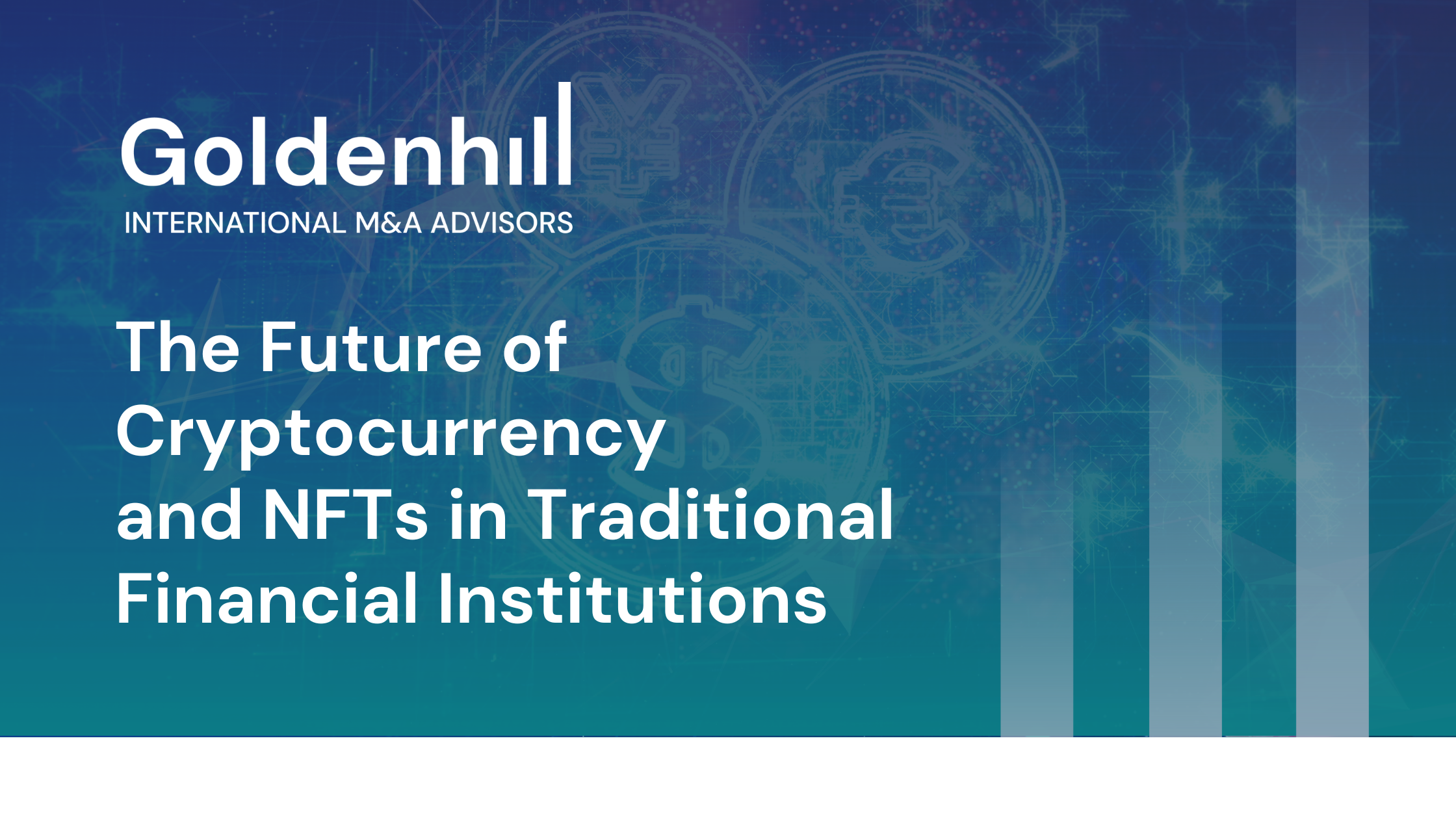
The Future of Cryptocurrency and NFTs in Traditional Financial Institutions
The FinTech industry continues to witness dramatic growth, with the world increasingly becoming digital and cashless. In this article we assess the future of cryptocurrency and NFTs in traditional financial Institutions.
Blockchain is a prime example, with this technology beginning to disrupt multiple areas, from payments to transactions to cybersecurity – but will its adoption become mainstream for all traditional financial institutions? Additionally, with the growing momentum and media coverage surrounding cryptocurrencies and NFTs (both using blockchain technology as their underpinning infrastructure) – how will their usage impact the sector?
The role of blockchain
Although there is an increasing discussion on blockchain disrupting the FinTech industry, many banks and traditional financial institutions are already adopting this technology, due to the benefits it provides in comparison to channels previously used.
Blockchain’s high-end security makes it suitable for applications in various sectors, such as capital markets, asset management, banking and trade finance. Additionally, this technology can tackle the volatility of the industry, by eliminating single points of failure, streamlining and reducing settlement times, whilst providing other benefits such as the digitisation of processes and tokenisation of assets. Blockchain can also effectively streamline asset and stakeholder management, aiding processes such as automated fund launch, portfolio digitisation, and automated fund administration.
The adoption of cryptocurrency and NFTs
NFTs are unique entities that cannot be exchanged one-for-one, meaning their use case is growing, and there is an increasing surge in their popularity, with big firms and major banks already looking into their potential.
As a result, the technology behind NFTs is already beginning to impact the financial sector with the potential to provide vast improvements, such as operational cost savings, fraud prevention and debt management.
Major institutions are already beginning to look into the usage of cryptocurrency and NFTs. In August 2021, payments processor Visa purchased an NFT based digital avatar (CryptoPunk) for nearly $150,000 in the cryptocurrency Ethereum. Secondly, Mastercard have expanded their consulting services to cover cryptocurrency and NFTs, in order to help businesses navigate the changing digital asset landscape.
M&A activity
M&A transactions hit a record high for the cryptocurrency sector with more than 197 acquisitions in 2021, representing a nearly 130% increase compared to the previous year, as noted in The Block Research’s 2022 Digital Asset Outlook report.
Major transactions include PayPal acquiring Curv, to accelerate and expand its initiatives to support cryptocurrencies and digital assets. Curv is a leading provider of cloud-based infrastructure for digital asset security based in Tel Aviv, Israel.
Secondly, digital asset merchant bank Galaxy Digital acquired custodian provider BitGo for $1.2 billion in cash and stock, with the acquisition establishing Galaxy Digital as a one-stop-shop for institutions, significantly accelerating their mission to institutionalise digital asset ecosystems and blockchain technology.
Thirdly, Tradeteq, a technology provider for trade finance asset distribution, partnered with Singapore-based eXchange inFinite (XinFin) in the first trade finance NFT transaction, which was conducted with Dublin-headquartered invoice finance company Accelerated Payments as the asset originator. The transaction completes the chain from investor right through to the recipient of funding with complete transparency, accountability and liquidity.
Although blockchain, cryptocurrency and NFT adoption across traditional financial institutions is still in its infancy, the benefits provided by the technology, means there is large potential for it to change the trajectory of the financial industry, with an increase in M&A activity following as a probable result.
Author: Chris Brooke
Partner
Highly-experienced M&A advisor with a particular emphasis in the Fintech sector, market data and analytics including ESG (Environmental, Social and Governance) software and data globally; assignments include working with leading privately held and listed businesses covering the Fintech, market data and ESG spectrum. In my career spanning more than 25 years, I have advised on Fintech M&A transactions in over 17 countries throughout the world. I work with both buyers and sellers of businesses in Fintech.
I held senior positions in business and corporate development, marketing, and product management in several Fintech companies prior to Goldenhill.
If you are an owner or senior executive of a Fintech business interested to discuss how M&A could help you accomplish your objectives – please get in touch.
